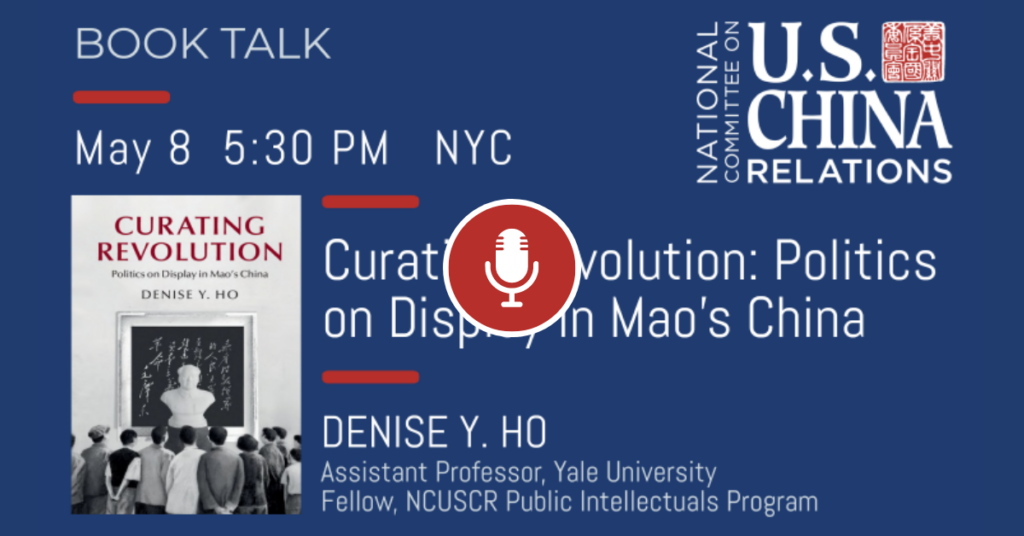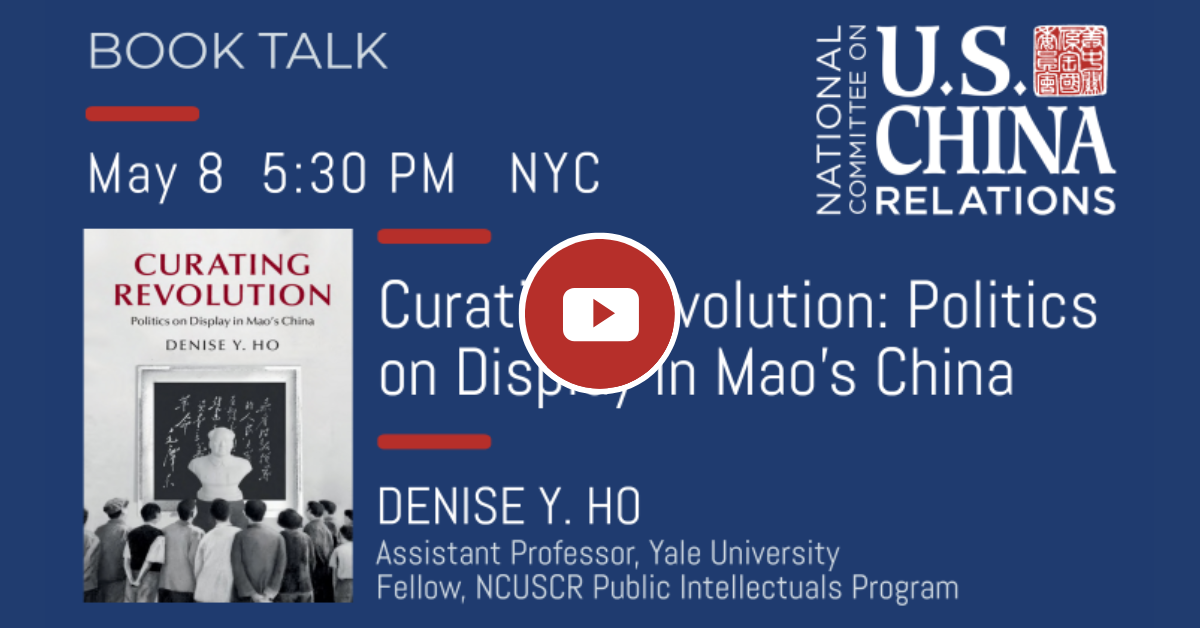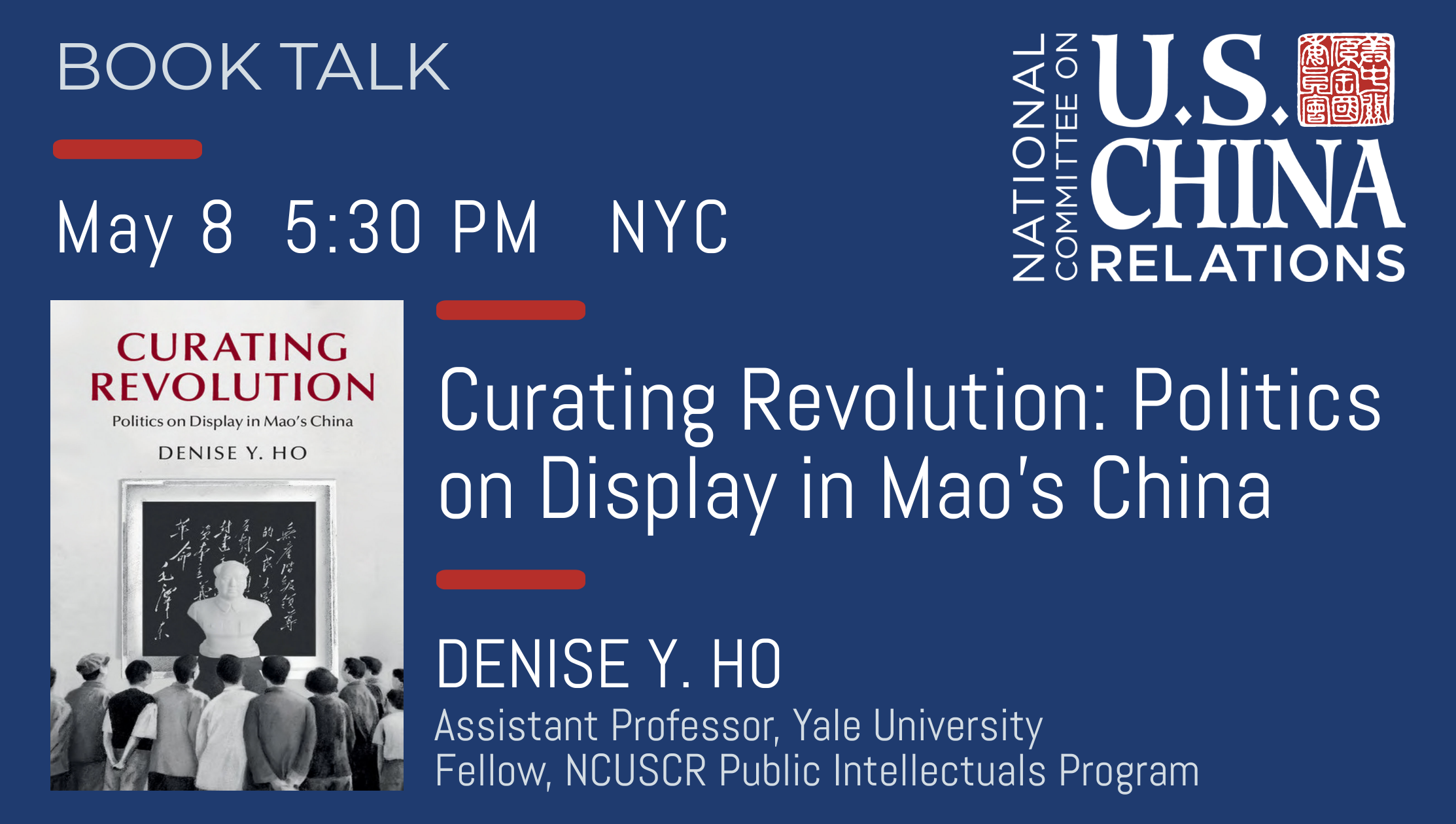Revolutionary activity in Mao’s China was a public affair: through mass meetings, trials, and self-criticism, China’s communist leaders made class struggle a public, participatory experience. The mass line, however, extended far beyond Red Guard units parading through Beijing. In a new book, Curating Revolution: Politics on Display in Mao’s China, Yale University professor and China historian Denise Y. Ho examines how museum curators in Shanghai sought to reinterpret China’s past through the artifacts they displayed in their exhibitions. Dr. Ho argues that the exhibits provided ‘object lessons’ in ideology and political activism, serving as the medium for both mass education and mass mobilization. Professor Ho joined us on May 8, 2018, for a discussion of her book, museum curation, and how the narrative legacy of China’s historical artifacts was reinvented in Maoist Shanghai.
Denise Y. Ho is an assistant professor of twentieth-century Chinese history at Yale University. Her research focuses on the social and cultural history of the Mao years; she is also interested in urban history, the study of information and propaganda, and the history of memory. Her scholarship has appeared in The China Quarterly, Frontiers of History in China, History Compass, and Modern China, and her writings on art, culture, and history in The Atlantic, ChinaFile, Dissent, The Los Angeles Review of Books, and The Nation among other publications. Prior to joining the history department at Yale, Professor Ho taught at the University of Kentucky and the Chinese University of Hong Kong. Dr. Ho received her bachelor’s degree in history from Yale, and her master’s and doctoral degrees, also in history, from Harvard. She is a fellow in the Public Intellectuals Program of the National Committee on U.S.-China Relations.


